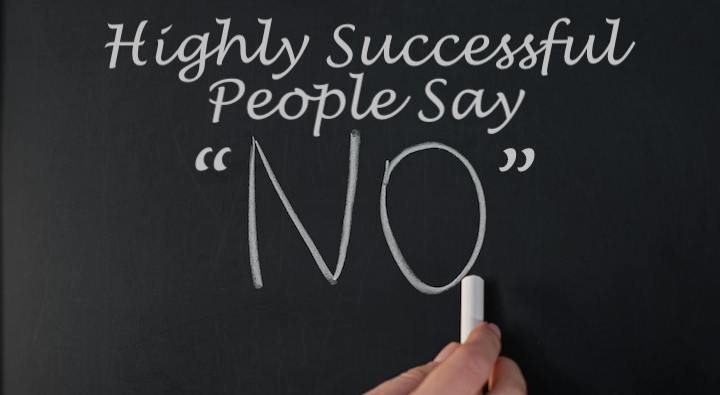
Highly successful people are creators. Now before you protest, “I’m not a creative person!” let me explain. To be creative doesn’t mean you have to be skilled with a paintbrush, play an instrument, or have an eye for interior design. Creative instinct takes many forms.
Whether they create new businesses, incredible art, valuable relationships, innovative products, powerful literature, unique opportunities, or impressive margin, I’m sure you’ll agree that the highly successful tend to be highly creative in their own ways. But how do they accomplish all that they do?
In my experience, the more successful you become, the more expectations land upon your shoulders, and the more opportunities unfold before your feet. These expectations and opportunities equal more demands on your time, which can very easily get in the way of actually achieving greater success.
How the Highly Successful Find Time to Create
In an article for Inc.com, contributor Jessica Stillman wisely noted,
“When we think of the highly successful, we generally think of all the things they do—build great companies, design incredible products, close impressive customers, etc.—but the simple truth is that behind every impressive accomplishment stands a long list of things they didn’t do. None of us has infinite time, and high achievers learn early (if sometimes painfully) that getting important things done means saying no… a lot.”
And there you have it. The secret to success—in many cases—is that tiny yet powerful word: “no.”
Highly successful people say “no.” They say it a lot. That doesn’t mean it’s easy, and that doesn’t mean they like it, but they realize it’s necessary. In order to create that which they are uniquely equipped to create, high achievers know they must guard their time carefully.
Weighing the Cost of “Yes”
Author Kevin Ashton defines time as the “raw material of creation.” In a recent article titled “Creative People Say No,” Ashton explains how creators carefully consider each opportunity, invitation, or request while asking themselves the question, “How much less will I create unless I say ‘no?’” He notes,
“Creators do not ask how much time something takes but how much creation it costs.”
Everything has a cost. Some costs cannot be measured in dollars spent, but virtually all costs can be measured in time spent. Creators know that choosing to spend x amount of their time on this means they will not be able to spend it on that. Jeff Walker calls this “opportunity cost,” and defines it as “what you have to give up when you choose between two or more different choices.”
We’ve all experienced this dilemma when shopping within a budget or ordering at a restaurant. But most of us don’t recognize this opportunity cost when saying, “yes” to a favor, a new project, a dinner invitation, or even our internal urge to sit on the couch and watch TV.
Saying “no” is rarely easy, especially if you’re out of practice. As Kevin Ashton put it, “We are not taught to say ‘no.’ We are taught not to say ‘no.’” In our society, saying “no” seems selfish, inconsiderate, or even rude. And we often fear that our “no” will be taken as a personal rejection, or possibly come back to haunt us later.
So discretion, of course, is necessary. Don’t just willy-nilly start throwing out no’s in response to every request or opportunity that comes your way, and be sure to season each “no” with grace and diplomacy. But realize that saying “no” to certain pursuits opens up opportunity for better pursuits. Author Greg McKeown said it well:
“I am all about saying no. It’s the price for being able to say yes to really wonderful things. It is the way to give attention to what matters most. It is a glorious word.”
If you really want to achieve greater success, you need to count the opportunity cost of every demand on your time, and be willing to say “no” to those requests and opportunities—no matter how alluring—that simply don’t match up with your highest goals and priorities.
What should you say “no” to today?

